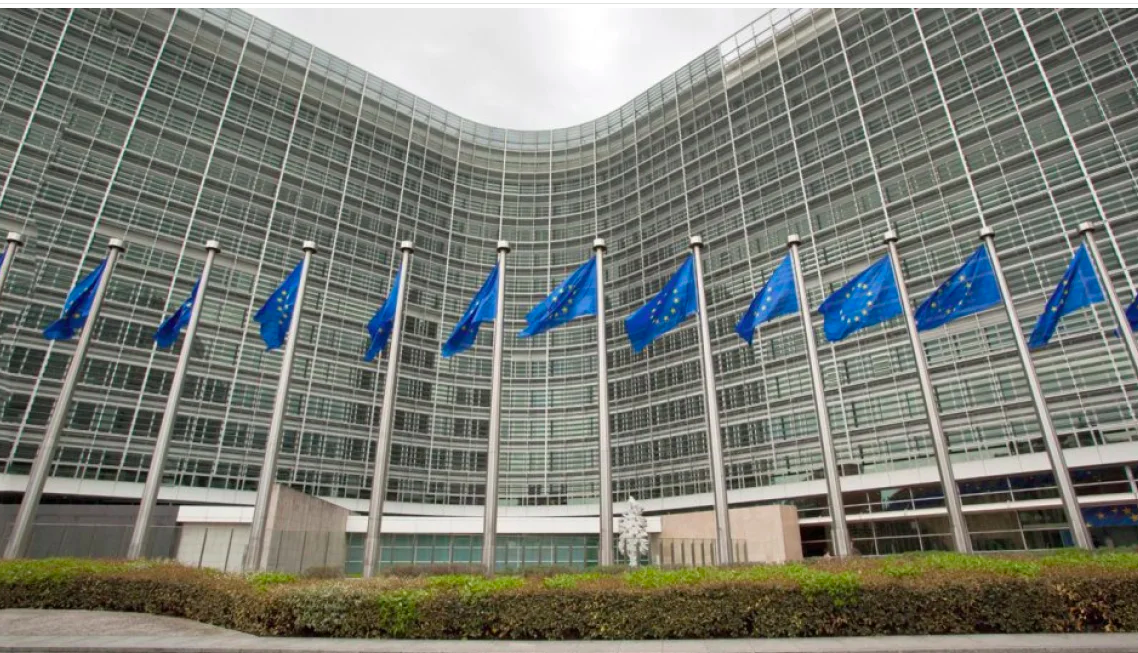For the fifth time, the annual cycle for the Rule of Law in Europe was completed with the publication of the relevant report by the European Commission, which captures the state of affairs in each Member State and the European Union as a whole.
Greece achieved high scores in the assessment, as progress was noted for the first time on all recommendations made by the Commission in last year’s report. Additionally, the landmark legislative intervention ensuring the judiciary’s involvement in the selection of its leadership is hailed as significant progress.
For 2024, only four recommendations are directed at Greece (placing it among the countries with the highest average in the European Union). Specifically, 18 EU member states receive more recommendations in this year’s report than Greece (including Germany, Spain, the Netherlands, Belgium, Italy, etc.). Greece shows improvement with 4 recommendations along with 3 other countries (Luxembourg, Sweden, Croatia), 4 countries receive 3 recommendations (France, Lithuania, Denmark, Estonia), and 1 country, Latvia, receives 2 recommendations.
In particular, this year’s report for Greece:
- Recognizes significant steps in the digitalization of justice and the increase in its effectiveness and speed, for example through the revision of the country’s Judicial Map and the Regulation of the Council of State. It also highlights Greece’s prioritization of utilizing the Recovery and Resilience Plan to strengthen the Rule of Law and the consistent implementation of related reforms.
- Acknowledges further progress made by Greece in combating corruption in a tangible and measurable way, strengthening provisions for the criminal liability of legal entities and bribery according to OECD standards. Additionally, the completeness of the legislation for asset declarations is noted, allowing for significant checks, along with measures to enhance transparency and integrity in public procurement processes.
- Identifies significant progress in strengthening the administrative and legislative framework for media operations, in line with European standards for protecting journalists, enhancing transparency around ownership, and protecting freedom of speech and journalistic function from malicious lawsuits with measurable data, which will be further reinforced by the recent abolition of the simple defamation offense from the Penal Code.
- Notes important improvements in the legislative process, such as increased average public consultation time, reduced amendments, elimination of last-minute amendments, and fewer regulations per amendment.
- Highlights further progress in the cooperation between the Ministry of Migration and Asylum and Civil Society Organizations through the establishment of a structured dialogue leading to legislative initiatives aimed at facilitating their activities, as well as positive developments in the interoperability of public registration records.
As every year, this report records a series of recommendations and observations, forming a roadmap for prioritizing interventions in specific policy areas.
What is the annual Rule of Law report
The annual Rule of Law report is a self-monitoring process established in 2020, allowing Member States and European institutions to conduct a detailed mapping of the functioning of democratic and justice institutions, identify weaknesses and best practices, create a foundation for policy convergence and harmonization, and ultimately ensure that Europe maintains the highest standards of Rule of Law globally. Each year, the analyses in the report become more substantive and detailed, increasing its added value, while the provision of specific recommendations over the past three years has enhanced its impact.
The report covers developments in four key areas: justice systems, the anti-corruption framework, media freedom and pluralism, and other institutional issues related to democratic checks and balances. The 2024 report assesses the state of the Rule of Law in the 27 EU member states, including monitoring the recommendations made in 2023 and significant developments at the EU level since July 2023. It consists of a general report and individual chapters for each member state. For all member states, the report includes specific recommendations aimed at helping them further in their efforts to promote ongoing reforms and identify areas needing improvement.
For all these reasons, the Greek Government has actively supported this interactive process for the Rule of Law situation in Europe from the outset, participating actively in all phases of preparing the report by the European Commission and subsequently utilizing it to promote targeted reforms by the Greek authorities.
To better respond to the exercise’s requirements, an interministerial Task Force has been established under the Presidency of the Government and the General Secretariat of Coordination, with the participation of all relevant ministries of Justice, Migration, Interior, Press, and Information. This Task Force monitors progress and challenges in each area examined by the report throughout the year and ensures the linkage of relevant initiatives with the Government’s reform program.
To further enhance the participation of interested institutional partners and Civil Society representatives on Rule of Law issues ahead of the sixth cycle starting today, the Task Force intends to launch an open process of regular dialogue. This will create a fruitful platform for submitting ideas and addressing dysfunctions, based on the common belief that every citizen will benefit from further strengthening the Rule of Law.
Minister of State Akis Skertsos stated: “Fair development, attracting more and better investments, reducing inequalities, and citizens’ trust in democratic institutions are directly linked to the functioning of the Rule of Law. This year’s European Commission Rule of Law report confirms that our efforts to bring Greece closer to Europe are bearing fruit. We are not complacent, as there are other critical areas where we must accelerate and improve to achieve a more functional and inclusive democracy.”
Minister of Justice Giorgos Floridis stated: “The systematic effort of the Greek government to continuously strengthen the Rule of Law is yielding results and is validated officially and credibly through the highest European institutional framework. We will continually strive to improve the state’s institutions to serve Greek citizens and converge with Europe institutionally.”
Deputy Minister of Justice Yiannis Bougas stated: “This year’s European Commission Rule of Law report reflects Greece’s significant progress towards institutional enhancement and further strengthening of Justice. Equal access to independent Justice for citizens undoubtedly constitutes an effective institutional counterbalance and guarantor of the Rule of Law. With the implementation of the Government’s legislative initiatives, we continuously safeguard individual freedoms, social rights, transparency, and equality. Greece, with a strong sense of justice, achieves stability, economic growth, and social prosperity.”
Government Spokesman and Deputy Minister to the Prime Minister responsible for Press and Information Pavlos Marinakis stated: “The European Commission’s report vindicates the Government’s efforts for more transparency, state flexibility, faster delivery of Justice, and protection of press freedom. At the same time, it provides a strong response to those who systematically slander Greece abroad with fake news. Significantly, progress is noted for the first time on each of the recommendations made by the Commission in last year’s report, with special mention of the further progress in strengthening the media, transparency in their ownership status, effective protection of journalists from malicious lawsuits, and ensuring their safety. We certainly have more to do. After all, ensuring the quality of our Democracy is a continuous challenge for all of us.”





